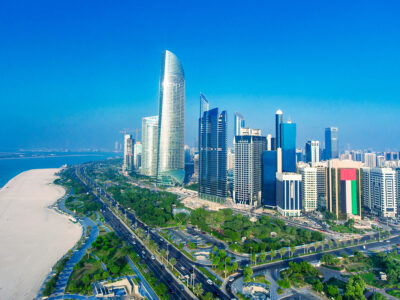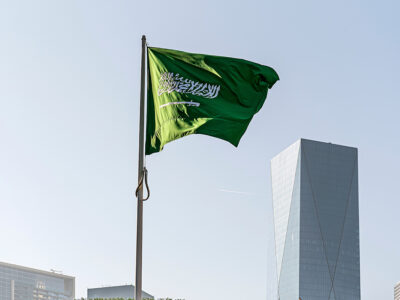The GCC economy is expected to contract this year due to the impact of the coronavirus crisis and low oil prices but will rebound in 2022, according to new research out on Monday.
Frost & Sullivan’s Gulf Cooperation Council Region Mega Trends, Forecast to 2030, said the region is expected to witness “impressive growth” through to 2030, driven by global and regional mega trends.
The report said the pandemic and diminishing oil prices caused the contraction in 2020 but, in the optimistic scenario, there will be signs of economic recovery by the second quarter of 2021.
“This will be due to member nations of the council… emphasising economic diversion from the oil sector to non-oil sectors and strategy implementation to encourage private enterprises to invest in and develop projects across all major sectors of the economy,” it noted.
The research added that advancement in technologies such as 5G, shift towards digital platforms and market places will pave the way for new business models.

“The business environment in the region will experience a transformation that will have a far-reaching impact on economic trends and social dynamics. Further, with the surge in digital penetration in the next decade, the GCC’s non-oil sectors — retail, healthcare, education, mega-event projects, and renewable energy — will continue to dominate the economy,” Frost & Sullivan said.
“Besides increasing mobile and internet penetration, several digital initiatives to improve city governance to citizens’ lifestyles will be the highlight of the region,” said Malabika Mandal, visionary innovation group consulting analyst at Frost & Sullivan.
“Going forward, sports events, religious tourism, and mega infrastructure projects are expected to catapult the GCC region into a zone of international interest and contribute to the region’s economic prosperity.”
Mandal added: “Mobility solutions in GCC are moving from car-centric to customer-centric solutions, thus providing a more convenient and integrated mode of transport… are creating opportunities for a new era of vendors, delivering IT-enabled solutions.”

The rise in app-based services and the adoption of advanced technologies such as AI, blockchain, and automation across sectors will lead to the rise of the platform economy in the region, which will present immense growth prospects for investors, the report said.
It added that business-to-business (B2B) e-commerce is a promising sector and is expected to grow by 234 percent by 2030, more than business-to-consumer (B2C) e-commerce.
It also said policy reforms, increasing awareness, and a large expatriate population are encouraging private sector growth in education in the region while the GCC chemicals sector is embracing transformation through increasing diversification of value-added products.
The report comes as non-oil private sectors in the Arab world’s three largest economies returned to growth in September, with Egypt seeing its first expansion in 14 months.

Business conditions improved despite continuing job losses as companies adjusted to the economic challenges of the global pandemic while governments eased restrictions to stop the coronavirus.
A measure of non-oil private sector activity in Saudi Arabia, Egypt and the UAE rose last month above the threshold of 50 that separates growth from contraction, according to Purchasing Managers’ Index surveys compiled by IHS Markit.








